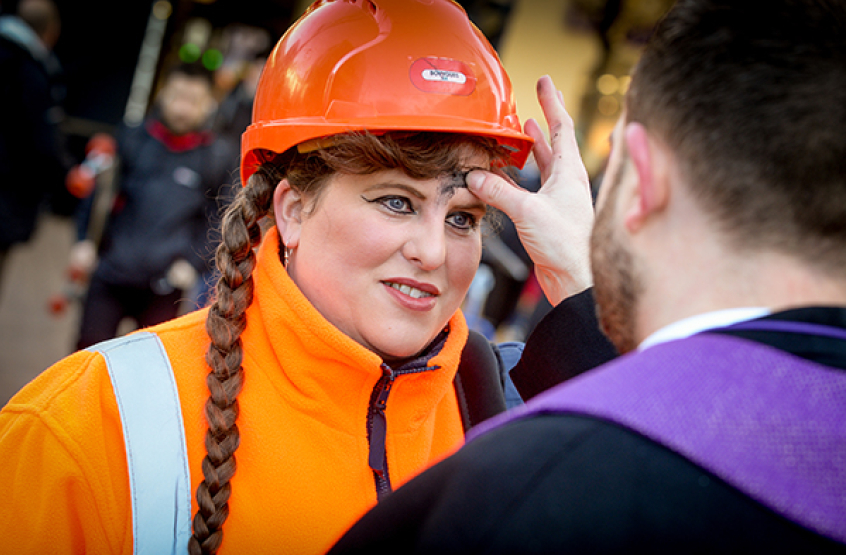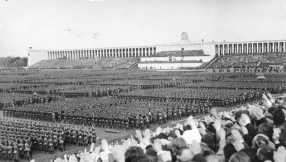Are evangelicals, with all the smoochy romantic music that's invaded our worship services (no, Jesus is not my boyfriend, thanks very much), really too intellectual for our own good?

I think we are, in the sense that so much of our religion takes place in our own heads. Becoming a Christian, for most evangelicals, doesn't have anything to do with baptism – the traditional rite of initiation into the Church – it's a purely mental transaction between us and God. Belief really matters, and that's a mental thing too. The message we get from our sermons and Bible studies is that growth in grace involves learning – the model's drawn from the schoolroom.
This question's provoked by the stories I've been hearing about people being 'ashed' yesterday for the start of Lent, including children at the local CofE school of the kind I attended myself a few decades ago. I don't remember anything like that happening there and suspect it would have been regarded as dangerously Romish – alright for Catholics, but not for us.
But ashing's back in fashion, and in a big way; it's seen as a form of outreach, a witness, a sign: and this makes it more acceptable to evangelicals who might have been suspicious of it otherwise.
There is, of course, much more to it than that, as Christians from liturgical traditions have always understood. These worshipful acts – like foot-washing on Maundy Thursday, making the sign of the cross, genuflecting before the altar, following the stations of the cross, repeating prayers from a book that we know so well we don't have to think about them any more, embody faith in a way that's very useful. They externalise it and make it a little more real. They give our internal belief something to latch on to. When we can do something instead of just thinking about it, a connection's made between the world of spiritual things and the world of everyday.
The evangelical world I grew up in was resolutely opposed to anything acted or even visual. We knew it was wrong to have a crucifix in church with the figure of Christ on it, because that was idolatrous; really hardline Baptists wouldn't even have an empty cross, because that was the thin end of the wedge. The only physical expression of faith we were allowed, apart from singing hymns – and the once-in-a-lifetime rite of baptism, of course – was communion. It was little squares of Mother's Pride and grape juice – not wine, because alcohol was suspect too – and was a rather grudging concession to ritual in a tradition that was fervently anti-ritualist.
I think that's a pity. I can't bring myself to care two hoots about the proper liturgical colours for the season and can't really join in with earnest discussions about the proper use of the censer (a gentle back-and-forth, or the full overarm swing?). But I see the drawbacks of a spirituality that lacks structure, that relies on how we feel and that puts all the onus on the individual believer to have that regular 'quiet time' of prayer and Bible study.
We are, after all, embodied creatures, not naked brains. Actions acknowledge that. I'm glad if evangelicals are more comfortable with formal liturgies, symbolic acts, art and artistry. Yes, our own relationship with God will always be personal and interior. But there's no reason why even the most resolute Baptist shouldn't testify to that with the sign of the cross.
Follow Mark Woods on Twitter: @RevMarkWoods













